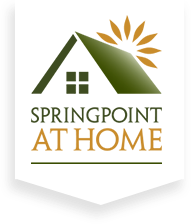
Home Care
How to Stay Safe Using Online Communities and Social Media for Healthcare Information and Caregiver Support
Online communities and social media are a terrific way to find healthcare information and support. But how do you know if the source is credible? How do you keep yourself safe and information private?
Credible resources and privacy may be keeping you offline, but there are real benefits to these resources, the first of which is their availability 24/7. Questions that are keeping you from sleeping can be asked within a closed online community and answers can be waiting for you when you wake up.
Online Communities
Online communities like SmartPatients.com and Inspire.com are private, that is you must join before you can ask or respond to community questions. For example, SmartPatients has 140 communities, Inspire over 100 communities. Most of these communities center around specific diseases (eg. Breast Cancer). Then there are general communities like Caring For a Parent and Hospice. All of which means you are communicating with people that have similar experiences, while support is available for the patient AND their caregiver. Experts moderate these sites to ensure reply information is correct and they will work to find answers for you.
How do you know if an online community is credible and safe?
- Look for closed communities to join
- Read the About page to ensure they use expert moderators
- Look for research, legislative and advocacy work and partnerships with credible sources like the Alzheimer’s Association.
- Ask your physician and support group for recommendations
- Look for sites that end in .gov or .edu
Social Media
Social media is a terrific way to get support for the patient and caregiver. Facebook is the most common social media forum, but Twitter and even Instagram have value.
Facebook has many closed and open groups based on diseases and support needs. Simply type “breast cancer” or “caregiving” into the search box and both groups and posts on that subject pop up. Groups can be public or private. Read through the descriptions, they will tell you the group’s purpose, if it is nonprofit or if is a group you must join (private). If you ask to join, be prepared to wait a day or two before permission is granted.
Twitter is not the most intuitive place for healthcare information and support. But once you have a Twitter account you can participate in Tweet chats. Tweet chats are regularly scheduled online group discussions over Twitter. An hour long, they can be specific to diseases like the gynecological cancers twitter chat #gyncsm, co-facilitated by Dee Sparacio of Women of Teal. The amount of research and medical information that can be found in some of these chats is amazing. And there are chats for caregivers as well. Caregiving.com hosts #carechat for caregivers every Tuesday at 1:00 PM EST.
If you are uncomfortable with the public nature of Twitter, each Tweet chat has a transcript, so you can read at your leisure, see the discussion, resources and links mentioned during the chat, all without ever typing in a character
Instagram is another social media platform that seems out of place for healthcare information and support. But it is used by medical institutions, advocacy groups and organizations to share event information, announcements and infographics on research.
How to stay safe and private on social media:
- Only join private Facebook or caregiver support groups. They are monitored and ensure group rules are followed.
- Don’t use the name of the person you are caring for, use a title like mom or dad. If you keep HIPAA compliance rules in mind, you are following the best model.
- Create an account with a nickname and don’t put any real identifying information like your birthdate or location. There are no Internet police who will catch you!
- Create a separate email address you use only for social media. Create different ones for each platform if you would like. There are no limits to how many Google accounts you can create.
- Follow research centers and teaching hospitals like the: NIC, NIH, Mayo Clinic, MD Anderson, Sloan Kettering.
- Follow professional organizations like: American Association for Cancer Research, Alzheimer’s Organization. They post vetted reliable resources.



